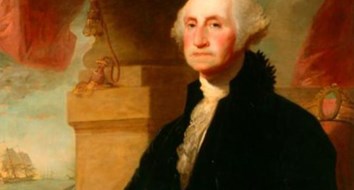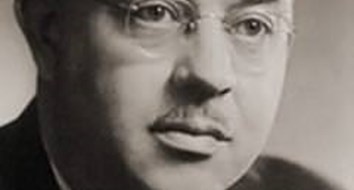Leonard Read’s “I, Pencil” is justifiably famous for using a simple example—a pencil—to show how complex social coordination really is. If no individual knows all it takes to even make a pencil, no individual or group can know enough to dictate to others how things that are much more complex should be done. I think of it as sort of a cross between Adam Smith’s “invisible hand” and Friedrich Hayek’s “The Use of Knowledge in Society.”
The invisible hand offers a metaphor for the social coordination and benefits provided to others as an unintended byproduct of individuals’ pursuit of their self-interest under the appropriate rules of the game—private property rights. And Hayek focuses on the details of time, place, and circumstance that only certain individuals know, as well as the importance of that information to wealth creation, which implies that efficient central planning is logically impossible since it throws away so much valuable information that forms the basis for wealth creation.
However, Leonard Read also extended voluntary arrangements’ superior utilization of information to all of civilization in “A Role for Rationality,” from his 1969 Let Freedom Reign. As we celebrate the 60th anniversary of “I, Pencil” and approach the 50th anniversary of Let Freedom Reign, his words are worth rethinking.
"The rise of civilized societies is the result of freedom…in no instance, a premeditated, rational design."
"Professor F. A. Hayek…observes: 'Modern man prides himself that he has built his civilization as if in doing so he had carried out a plan which he had before formed in his mind. The fact is, of course, that if at any point of the past man had mapped out his future on the basis of the then-existing knowledge and then followed this plan, we would not be where we are.'"
"Each praiseworthy society…has not flowered from a rationally designed scheme…but, rather, has bloomed from a state of freedom come upon unwittingly, inadvertently, accidentally."
"History’s greatest creative outburst took place in the United States of America where freedom—private ownership, freedom in transactions, willing exchange, government limited to keeping the peace—was more nearly approximated than elsewhere or at any time."
"Was the American miracle premeditated, a rationally designed structure of society? Far from it! The people who came to this land were fleeing from old-world tyranny…[they] observed that the more a government ruled the actions of men the worse off they became. Their conclusion: that government is best which governs least."
"Settlers…limited government more severely than governments had theretofore been limited…freer than man had ever been before…these forebears of ours hadn’t the slightest idea of what lay in store for them except that each could be his own man. They chose freedom for freedom’s sake…free to act creatively as they pleased."
"For the first time in history, every individual, regardless of station or status, was his own man. Each could employ himself as he saw fit, each retain the fruits of his own labor, each decide his form of worship; in a word, freedom of choice in all aspects of life was as open to one as to another."
"It is only in an essentially free society that certain trends have the possibility of prevailing: self-responsibility, improved morals, a passionate striving for intellectual excellence, a will to overcome obstacles, an energetic enthusiasm turned inward to self-improvement, an abounding entrepreneurial spirit, competition, and free pricing."
"The reason that creativity and social felicity can flourish only in an essentially free society is an enormous wisdom or knowledge that cannot otherwise be tapped… not only the most important but, also, the most overlooked point in political economy."
"Freedom’s opposite, an essentially authoritarian society where the dictator or a committee…plan and dictate…On what knowledge does such a society operate?...no more knowledge in operation than he and his bureaucracy possess."
"All knowledge in society stems from freedom trying to operate, and only when this fact is overlooked do people come to believe that an authoritarian society has possibilities worth exploring."
"Now, reflect on the knowledge that emanates from an essentially free society. It is a luminosity so brilliant that, by and large, we are blinded not only to its genesis but even to its part in our lives."
"The enormous knowledge that emanates from an essentially free society develops by reason of the fact that in such a society no person imposes his will by force upon any other person…When no one can restrain anyone else in his creative actions, then knowledge, ideas, insights are free to emerge from many millions of potential sources. Creativity, in this event, has no external inhibition!"
"Freedom taps this richest of all the world’s resources."
"The knowledge freedom makes available to all of us is unimaginably greater than the knowledge that can issue from those who would rule others."
"To ever so many people, it’s only a question of who shall rule…Overlooked is the fact that your knowledge or mine is infinitesimal, that not enough knowledge exists in any discrete individual to rule a single person, let alone a society. Also overlooked…is the almost unknown alternative, strikingly impressive, once it is apprehended. That alternative is the aggregate of all the knowledge issuing in literally trillions of tiny bits from all who live."
Leonard Read recognized that freedom was not only the source responsible for efficient production of pencils, multiplied billions of times over. It was, and is, the foundation of civilization—“praiseworthy society.” Civilized society, which is so complex it defies our ability to plan either its creation or development, is solely the outgrowth of freedom, and so civilization rises and falls together with freedom.
Given how freedom has been eroded by “public servants” who continually substitute their necessarily infinitesimal knowledge for the “Creative Wisdom” of a free society coordinated by voluntary arrangements, that is a far from encouraging prospect for our future.
But there is a way to change that. Extend the implications of “I, Pencil” more broadly, recognize the irreplaceable role of freedom, and restore it, unleashing the “luminosity” that has been ever more closely hemmed in by freedom’s shrinkage. As Read concluded:
Rationality does not require that I comprehend precisely how trillions of tiny bits of knowledge form into Creative Wisdom in order to affirm my certainty that this is a phenomenon essential to life…Creative Wisdom functions only in freedom…we must not only know that freedom is essential but must try to know why it is essential.
That brings us back to “I, Pencil” and its call for faith in free people as “an absolutely essential ingredient for freedom: a faith in free men”:
Without this faith there is nothing to believe in except controlled men. It’s either a faith in free men and peace—or the lack of it and violence.
The lesson I have to teach is this: Leave all creative energies uninhibited, and thus make it possible for people to organize themselves in harmony with this lesson. Let society’s legal apparatus remove all obstacles as best it can, that is, let it keep the peace. Merely permit these creative know-hows freely to flow. Have faith in what free men will accomplish. Not only will this faith be confirmed but it has been and is confirmed to us daily, in evidence so abundant that we seldom take notice of it. I, Pencil, seemingly simple though I am, offer the miracle of my creation as testimony that faith in free men is a practical faith.





